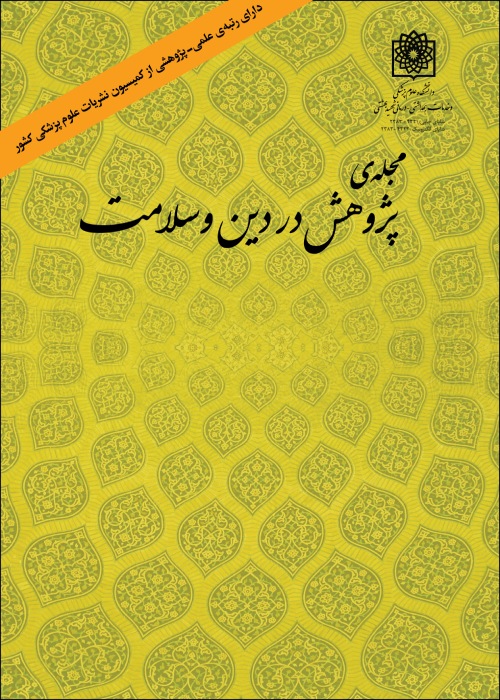Investigating the Effect of Reciting the Quran and Listening to it on the Dimensions of Spiritual Well-Being of Payame Noor University Students
Author(s):
Article Type:
Research/Original Article (دارای رتبه معتبر)
Abstract:
Background and Objective
Despite the fact that the mission statement of Islam has been defined as achievement of happiness in this world and the afterlife, humans have come to understand the significance of spiritual well-being in recent years. In many verses, the Quran is introduced as “healing”. As a pioneer study in this area, the current research aimed to examine how the use of the Quran may enhance spiritual well-being among university students. The ultimate goal was to propose some strategies to improve spiritual well-being.
Method
This study adopted a pretest-posttest design and utilized the Spiritual Well-Being Scale developed by Paloutzian and Ellison for data collection. The participants (N=63) were divided into two groups. To provide intervention to improve spiritual well-being, the members of the first group were advised to recite the Quran twice a week when they were sad, while the members of the second group were invited to listen to the Quran recitation twice a week, each time for ten minutes, when they felt down. The time interval between the pretest and posttest was three months. Levene test, chi-square, paired-samples t-test, analysis of covariance, and one-way analysis of variance were employed for data analysis. All ethical issues were observed in this study and the researchers declared no conflict of interests.
Results
Based on the results of the pretest, the mean scores of spiritual well-being of participants in the recitation and listening groups were 87.88±18.12 and 90.74±14.48 respectively. The same mean scores in the posttest rose to 94.09±13.719 and 95.30±12.135 in the same order. The university students therefore enjoyed a moderate level of well-being. Furthermore, age, gender, major, marital status, illness, and employment status were significantly associated with spiritual health (p<0.001). Finally, it was discovered that Quran recitation, in which a pretest-posttest mean score difference of 6.21 was recorded, was found to be a more effective intervention than listening (R=0.959, p<0.001).
Conclusion
Reciting the Quran and listening to it both improve spiritual health among university students. The results of paired-samples t-test indicated a significance rise in the participants’ spiritual well-being mean score from the pretest to the posttest (p<0.001). According to the results of analysis of covariance, however, no significant difference was detected between recitation of and listening to the Quran in terms of their effect on well-being (f=0.931 and p=0.338). Thus, it can be argued that reciting the Quran and listening to it both can enhance the spiritual well-being score, with the former registering a more profound effect.Keywords:
Language:
Persian
Published:
Journal of Pizhuhish dar din va salamat, Volume:4 Issue: 5, 2019
Pages:
103 to 117
magiran.com/p1919455
دانلود و مطالعه متن این مقاله با یکی از روشهای زیر امکان پذیر است:
اشتراک شخصی
با عضویت و پرداخت آنلاین حق اشتراک یکساله به مبلغ 1,390,000ريال میتوانید 70 عنوان مطلب دانلود کنید!
اشتراک سازمانی
به کتابخانه دانشگاه یا محل کار خود پیشنهاد کنید تا اشتراک سازمانی این پایگاه را برای دسترسی نامحدود همه کاربران به متن مطالب تهیه نمایند!
توجه!
- حق عضویت دریافتی صرف حمایت از نشریات عضو و نگهداری، تکمیل و توسعه مگیران میشود.
- پرداخت حق اشتراک و دانلود مقالات اجازه بازنشر آن در سایر رسانههای چاپی و دیجیتال را به کاربر نمیدهد.
In order to view content subscription is required
Personal subscription
Subscribe magiran.com for 70 € euros via PayPal and download 70 articles during a year.
Organization subscription
Please contact us to subscribe your university or library for unlimited access!



